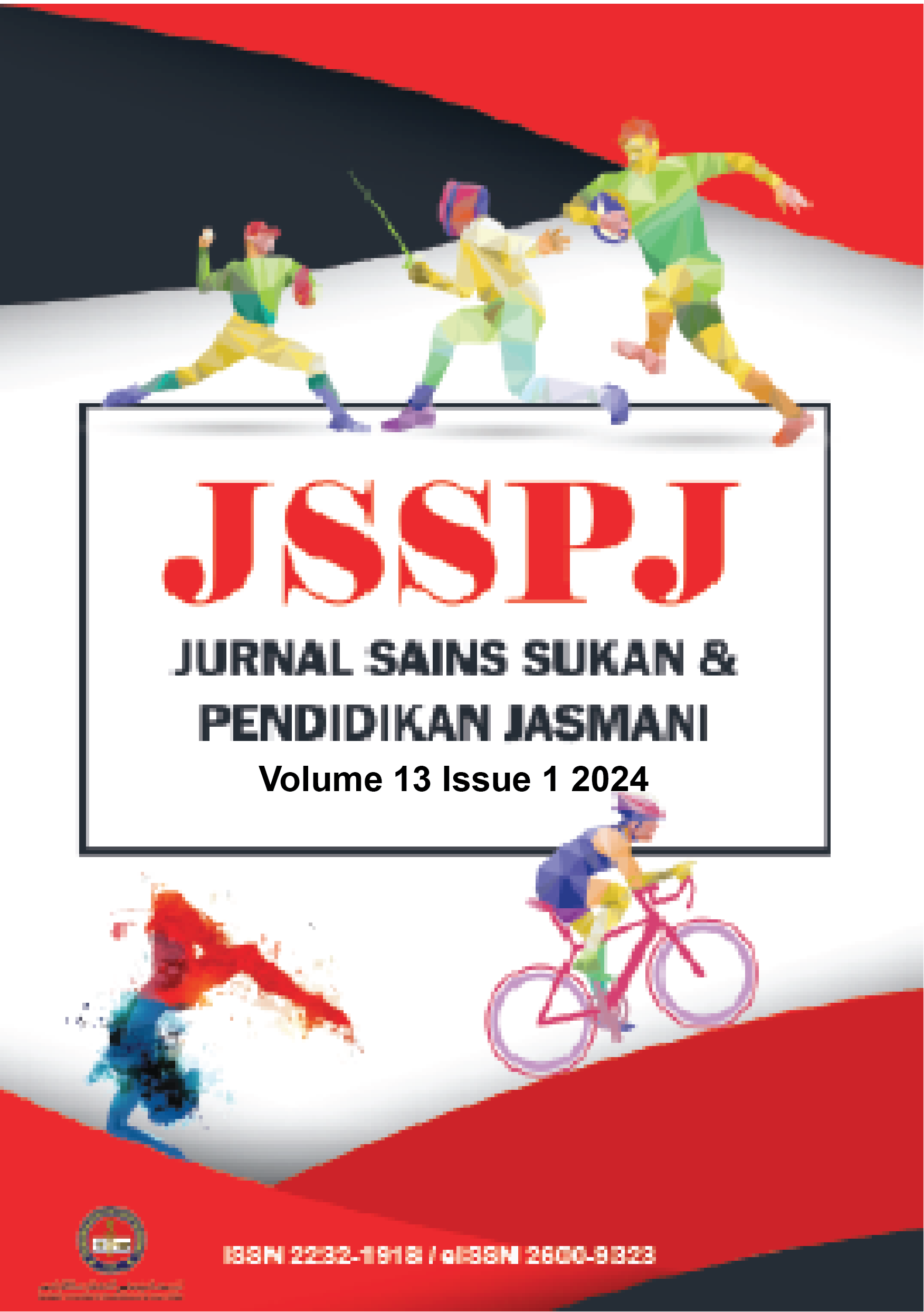Exploring Pathways: Constraints, Initiatives, and Alternatives for Introducing Tennis in Primary Education
DOI:
https://doi.org/10.37134/jsspj.vol13.1.8.2024Keywords:
Tennis constraints, Tennis initiatives, Tennis alternativesAbstract
This study aims to examine the constraints, initiatives, and alternatives of teachers in training primary school tennis players. This study also seeks expert consensus on tennis abilities and suitable equipment for training students to play tennis without a court at school. Information was gathered through surveys and interviews. The study participants included three (3) primary school teachers who coached school tennis players, along with 20 experts in sports science, sports psychology, physical education, module development, and tennis coaching. The interview revealed that teachers have difficulties in training their players, such as no tennis court facilities and limited equipment, inadequate support systems, and a lack of dedication. The teacher's goal is to prepare a team by utilising creativity and available resources as a training platform. Experts' appraisal indicates that the abilities requiring training off the tennis court are sending and receiving for the tactical aspect, and forehand, backhand, volley, and serve for the technical aspect. The equipment needed to play tennis without an actual court is a racket, a net, a level 1 tennis ball (red), a cone, a marker, and a marker line. Ultimately, this study suggests that basic tennis skills can be practiced without an actual court by utilising approved equipment recommended by experts. A tennis sports readiness module should be created for primary school students in Malaysia, based on the study's findings on street tennis, to enhance the competitiveness of tennis sports in the country.
Downloads
References
Abdullah, M. R., RIZKY, M. Y., & Lusianti, S. (2021). Upaya meningkatkan keaktifan siswa dalam pembelajaran penjas melalui modifikasi bolavoli pada siswa kelas 8 mts hidayatus sholihin turus gurah kediri. Undergraduate thesis, Universitas Nusantara PGRI Kediri.
Buszard, T., Farrow, D., Reid, M., & Masters, R. S. W. (2014). Modifying equipment in early skill development: a tennis perspective. Research Quarterly for Exercise and Sport, 85, 218-225. doi: 10.1080/02701367.2014.893054
Calvo, T. G., Cervelló, E., Jiménez, R., Iglesias, D., & Murcia, J. A. M. (2010). Using self-determination theory to explain sport persistence and dropout in adolescent athletes. The Spanish Journal of Psychology, 13(02), 677-684
Chong, A., & Lim, S. (2019). Grassroots sports development: The Malaysian context. International Journal of Sports Science & Coaching, 14(5), 662–674. doi:10.1177/1747954119846055
Deelen, I., Ettema, D., & Kamphuis, C. B. (2018). Time-use and environmental determinants of dropout from organized youth football and tennis. BMC public health, 18(1), 1-15.
Desai, M. S., & Johnson, R. A. (2014). Integrated systems oriented student-centric learning environment: A framework for curriculum development. Campus-Wide Information Systems.
International Tennis Federation. (2014). ITF Junior Tennis Task Force - ITF guidelines and recommendations around 12, 10 and under competitions/ accelerated performance pathway
Jones, M. (2018). The importance of sports facilities in youth athlete development. Journal of Sport Management, 32(1), 87–95. doi:10.1123/jsm.2017-0102
Kirk, D. (2005). Physical education, youth sport and lifelong participation: The importance of early learning experiences. European Physical Education Review, 11, 239-255.
Lee, K. (2021). Tennis in Malaysia: Challenges and opportunities. Journal of Tennis Research, 14(2), 123–136. doi:10.1016/j.jtr.2020.12.003
Reynolds, G. (2018). The best sport for a longer life? try tennis. The New York Times. Retrieved from https://www.nytimes.com/2018/09/05/well/move/the-best-sport-for-a-longer-life-try-tennis.html
Smith, J. (2019). Enhancing the tennis experience: A case study of facility development. International Journal of Sports Facilities, 6(2), 78–89. doi:10.17135/josf.2019.0015
Tan, L., et al. (2020). The impact of sports participation on academic performance: A meta-analysis. Journal of Educational Psychology, 112(5), 1015–1031. doi:10.1037/edu0000436
Downloads
Published
Issue
Section
License
Copyright (c) 2024 Muhammad Nur Aizuddin Abdul Rahman, Abd Rahim Mohd Shariff, Hazuan Mohd Hizan

This work is licensed under a Creative Commons Attribution-NonCommercial-ShareAlike 4.0 International License.





